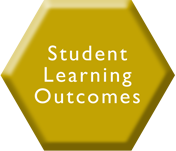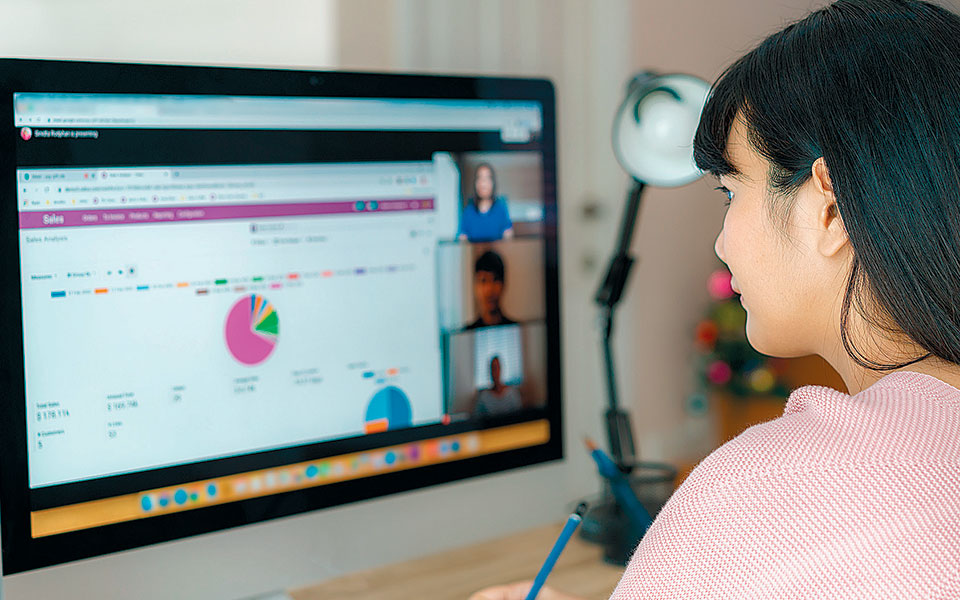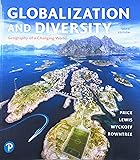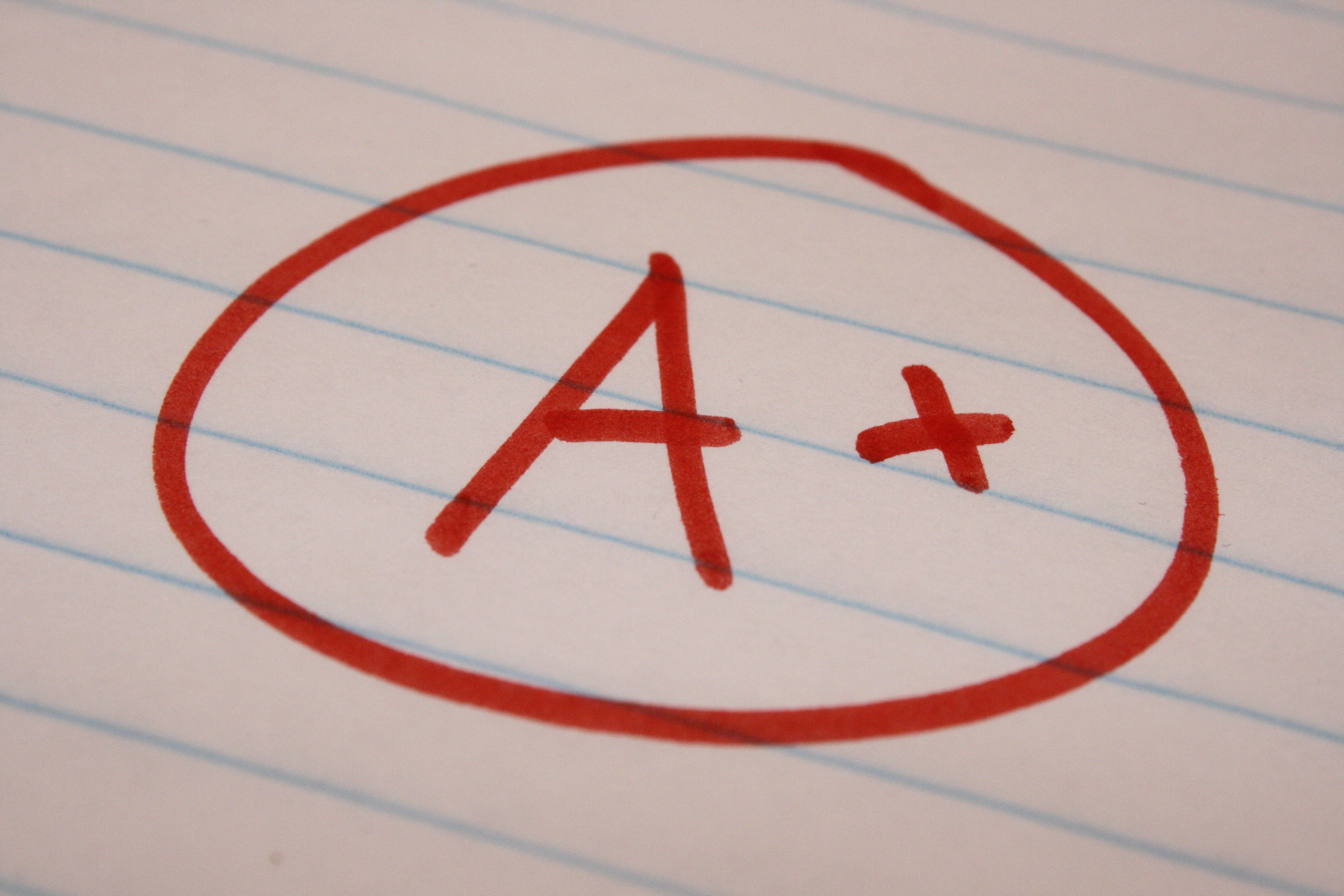Course Syllabus
Geography 3: World Regional Geography

Watch Instructor Video Links to an external site.
Important note: Whenever you see a video or an external link highlighted in orange, you are required to watch the Video or read what is provided in the link. This is the heart of the class!
Regional Geography focuses on where people and places are and why they are where they are. How do unique physical and human environments evolve and interact? How are regions unique? How are they interconnected?
This class will have a particular focus on globalization, economic equity, population and gender, and environmental challenges around the world. We will begin by reviewing concepts of regional, cultural, economic and physical geography. It is not possible to cover the entire world in a single semester. Some instructors cover many regions spending very little time on each. Instead we cover a few in some depth.
We will focus on North America, Central and South America, Sub-Saharan Africa, and cover a region featuring prominently in the news. This semester the region will be discussing is the Ukraine and its neighbors.
 Student Learning Outcomes
Student Learning Outcomes
What is a Region? A region is an area of land that has common features. These features can be natural, such as climate or landscape. They can also be based on human constructs; such as language, religion, political institutions, culture or shared history.
Upon completion of this course, you should be able to
- Compare and contrast major world regions with respect to location, natural environments, peoples, cultures, political systems, resources and economies
- Recognize and explain the role globalization plays in shaping the world
- Utilize geographic methods and tools to recognize and interpret the spatial distribution of Earth’s physical and cultural features
- Analyze world events and contemporary issues utilizing geographical methods and tools
- Recognize the role humans play in altering the physical environment
Class Meetings: Oh ya, there aren't any

 This class will be taught asynchronously. That means there aren't any required live class meetings. I will be providing materials, lectures, tests, and assignments that can be accessed online through Canvas and turned in or completed by the deadlines specified. I may have some optional live, Zoom study sessions for exams and I will have optional live Zoom office hours available. Office hours are optional though you are strongly advised to get help as soon as you need it. Also, attending at least one office hour will earn you extra credit.
This class will be taught asynchronously. That means there aren't any required live class meetings. I will be providing materials, lectures, tests, and assignments that can be accessed online through Canvas and turned in or completed by the deadlines specified. I may have some optional live, Zoom study sessions for exams and I will have optional live Zoom office hours available. Office hours are optional though you are strongly advised to get help as soon as you need it. Also, attending at least one office hour will earn you extra credit.
Office hours will begin at 4 pm on 2/7. If you can't make it on Wednesdays, please don't hesitate to contact me and we can arrange a time that works for both of us.
Taking an online class is different! It takes more discipline and self-motivation than a face to face class. Here are some tips for success:
- Treat an online course like a “real” course.
- Hold yourself accountable
- Practice good time management.
- Create a regular study space and stay organized.
- Eliminate distractions.
- Actively participate.
- Build relationships with other students
Instructor Contact
 I prefer to use the message function in Canvas
Links to an external site.to communicate. I will, however, check my email regularly and may occasionally use email for announcements. Alternative ways to contact me are:
I prefer to use the message function in Canvas
Links to an external site.to communicate. I will, however, check my email regularly and may occasionally use email for announcements. Alternative ways to contact me are:
Email: cbraschi@santarosa.edu
Phone: (707) 799-5172 (please call only between 9 am and 8 pm)
Office Hours: 4 pm on Wednesdays or by arrangement with me. Office Hours begin 2/7. Here is your Zoom Invitation:
Catherine Braschi is inviting you to a scheduled Zoom meeting.
Topic: Office Hours S 2024
Time: Feb 7, 2024 04:00 PM Pacific Time (US and Canada)
Every week on Wed, until Mar 20, 2024, 7 occurrence(s)
Feb 7, 2024 04:00 PM
Feb 14, 2024 04:00 PM
Feb 21, 2024 04:00 PM
Feb 28, 2024 04:00 PM
Please download and import the following iCalendar (.ics) files to your calendar system.
Weekly: https://santarosa-edu.zoom.us/meeting/tZEpcO2gpzktGtJmttpLpZ51wJijroWqwdmR/ics?icsToken=98tyKuGtqjwuEt2XtxmBRpwMBo_CLPzxmHpajbd3kQvxEwxDWFanIchLOKBwJ8nH
Join Zoom Meeting
https://santarosa-edu.zoom.us/j/85474892706
 You will also see announcements from me in Canvas. Look for them and definitely read them!!!!
You will also see announcements from me in Canvas. Look for them and definitely read them!!!!
In Canvas, you can control how often you receive notifications from your online classes. I encourage you to take a look at the notification preferences Links to an external site. so that it works best for you.
I am constantly working to improve my teaching online. It's a slow process for us old folk. I will make mistakes. Please be patient with me. If you see what is an obvious (or even not so obvious) error, please let me know. You will be helping me and your classmates and I will be very appreciative.
Textbooks
I do not require a textbook or atlas. Everything you need will be provided online.
I will provide extensive online material for you to read in Canvas sometimes with links to outside videos and reading plus my recorded lectures. This material is REQUIRED. You will not do well in this class if you do not read the Canvas material, watch the outside videos, watch tutorials and watch my lectures. That's the trade off - no textbook but what I provide is mandatory reading and viewing.
If you think you would benefit from using a textbook or an atlas, I recommend the following:

"Globalization and Diversity: Geography of a Changing World ", 6th Edition;
ISBN-13: 978-0134898391
"DKS Essential World Atlas"; 9th Edition; ISBN 9781465450692 (even if you have another Atlas at home, you will need this specific Atlas)
Required Software
You will need the following software for this course. There are assignments that you really can not complete on your phone. So please be prepared to use a computer.
The JC may have computers to loan. Check with the College.
Adobe Reader Links to an external site.
Open Office Links to an external site.
Google Earth Links to an external site.
 Important Dates
Important Dates
 Day Class Begins: January 29, 2024 (please remember this is a compressed, "Transfer Track" course and these dates are different from the regular JC Schedule)
Day Class Begins: January 29, 2024 (please remember this is a compressed, "Transfer Track" course and these dates are different from the regular JC Schedule)
Day Class Ends: May 17, 2024
Last Day to Drop without a 'W' symbol: February 4, 2024
Last Day to Drop with a 'W' symbol: April 21, 2024
If you decide to discontinue this course, it is your responsibility to officially drop the class to avoid getting no refund, a W symbol or a grade.
JC Holidays: 2/15, 2/16, 2/19, Spring Break (3/18 - 3/24), 4/1
Again, this class ends May 17, 2024. All work will be completed in this class by May17, 2024.
Pass‐NoPass (P/NP)
You may take this class P/NP. You must decide before the deadline, and add the option online with TLC or file the P/NP form with Admissions and Records. With a grade of C or better, you will get P.
Once you decide to go for P/NP, you cannot change back to a letter grade. If you are taking this course as part of a certificate program, you can probably still take the class P/NP. Check with a counselor to be sure.
Instructor Announcements and Q&A Forum
I will post announcements on the “Instructor Announcements” page in Canvas  throughout the semester. Canvas will notify you according to your preferred Notification Preferences as soon as I create an Announcement. A “Q&A Forum” is also available on Canvas so that you can ask for assistance of your classmates or me. Please check it out frequently. Maybe you can help someone in the class.
throughout the semester. Canvas will notify you according to your preferred Notification Preferences as soon as I create an Announcement. A “Q&A Forum” is also available on Canvas so that you can ask for assistance of your classmates or me. Please check it out frequently. Maybe you can help someone in the class.
Attendance/Participation
It isn't a party without you!! Your attendance will be taken in the form of your participation in Quizzes, Assignments and Discussions. You will be considered to have attended class for the week if you participate in the online activities for that week. Your participation and attendance is not only important to your success in this class, but also to the success of the entire class. This course is designed to be inter-active and student-centered. If you fail to participate in the manner described above , and miss five or more activities (quizzes, assignments and discussions) you will be dropped from the class for failing to attend the class. If you need help and something is going on that is preventing you from participating, please contact me! We can figure out something together and keep you in the class!
Extra Credit!! As an extra incentive to help keep you moving along, I will give you 10 extra credit points if you:
- miss no more than one quiz,
- participate in all discussions,
- and miss no more than 1 assignment.
And an additional 5 points of extra credit if:
- come to one (or more) office hours
There will be a number of other opportunities to earn extra credit in this class. As  already mentioned, the easiest way is to simply do the work There may be extra credit questions on assignments, discussions or exams.
already mentioned, the easiest way is to simply do the work There may be extra credit questions on assignments, discussions or exams.
Another way to earn Extra Credit is to participate in the optional Current Events Discussion Activity. Find a relevant article on the Region we are currently studying. Post a brief summary of the article and provide a link to that article in your post. This will be worth 10 Extra Credit Points. You may also earn extra credit for responding to a Current Event Discussion post for 5 points. You may do this two (2) times during the semester for a total of 30 possible extra credit points.
Late Policy
Assignments will be due by 11:59 pm on the due date. Let's face it stuff happens and sometimes we just can't nail a deadline. TALK TO ME! Message me.! Let me know something is up. Unfortunately, Quizzes and Discussions need to be completed on time by if you miss an exam or an assignment, talk to me!! If you communicate with me PROMPTLY, we may be able to work something out. I can provide an extension and allow you to complete the work on Canvas.
Exams, Assignments and Discussions
 There will be (5) five Unit Exams. They will be based on my lectures, canvas and assignments. If any exam is missed, a zero will be recorded as the score. It is your responsibility to take the online exams by the due date. If you are unable to take an exam because of an emergency or a technical issue, contact me ASAP and I will consider makeups on a case-by case basis. Under no circumstance will you be allowed to take more than one makeup exam per semester.
There will be (5) five Unit Exams. They will be based on my lectures, canvas and assignments. If any exam is missed, a zero will be recorded as the score. It is your responsibility to take the online exams by the due date. If you are unable to take an exam because of an emergency or a technical issue, contact me ASAP and I will consider makeups on a case-by case basis. Under no circumstance will you be allowed to take more than one makeup exam per semester.
There will also be quizzes most weeks.. These will be very short (between 5 and 10 questions) and you will be able to attempt the quizzes three (3) times. If you miss a quiz, it can not be made up.
There will also be an assignment and a discussion for most Units. All assignments and discussions are due at 11:59 p.m. on the due date. See the "Late Policy"above regarding assignments. Unfortunately, due to the nature of discussions no late submissions to discussions will be accepted.
Grading Policy
 I try to grade discussions, assignments and exams as quickly as possible. Check the Canvas Grade Book to see how you're doing and any comments I may have.
I try to grade discussions, assignments and exams as quickly as possible. Check the Canvas Grade Book to see how you're doing and any comments I may have.
Where it will benefit the class, I may grade using a simple curve. Otherwise grades will be assigned as follows:
"A" 90% and above
"B" 80 - 89%
"C" 70 - 79%
"D" 58 - 69%
"F" under 58%
If taking Pass/No Pass you need at least 70% of the total class points to pass the class.
Standards of Conduct
Students who register in SRJC classes are required to abide by the SRJC Student Conduct Standards. Violation of the Standards is basis for referral to the Vice President of Student Services or dismissal from class or from the College. See the Student Code of Conduct page.
Collaborating on or copying of tests or homework in whole or in part will be considered an act of academic dishonesty and result in a grade of 0 for that test or assignment. I encourage students to share information and ideas, but not their work. See these links on Plagiarism:
SRJC Writing Center Lessons on avoiding plagiarism
SRJC's policy on Academic Integrity
Links to an external site.
 Avoid Plagiarism Like the, er, Plague
Avoid Plagiarism Like the, er, Plague
Although you no doubt know all about plagiarism its worth a reminder that it is a fast track to a failing grade. Bottom line, do your own work! Don't be so sure that anyone knows more than you do.
I had an unpleasant experience last semester where several students copied and pasted material that I had posted on Canvas as answers to an Exam questions. Copying my material is still plagiarism and will earn you an "F". Please put things into your own words.
This video below reviews what plagiarism is and how not to do it. Plagiarism: How to avoid it
Links to an external site.
 Netiquette, or Why Is It Harder to Be Polite Online?
Netiquette, or Why Is It Harder to Be Polite Online?
Netiquette refers to using common courtesy in online communication. All members of the class are expected to follow netiquette in all course communications. Use these guidelines:
- Use capital letters sparingly. THEY LOOK LIKE SHOUTING.
- Forward emails only with a writer's permission.
- Be considerate of others' feelings and use language carefully.
- Cite all quotations, references, and sources (otherwise, it is plagiarism).
- Use humor carefully. It is hard to "read" tone; sometimes humor can be misread as criticism or personal attack. Feel free to use emoticons like :) for a smiley face to let others know you are being humorous. Sarcasm is particularly difficult to read online so don't use it.
- Use complete sentences and standard English grammar to compose posts. Write in proper paragraphs. Review work before submitting it.
- Text speak, such as "ur" for "your" or "ru" for "are you" etc., is only acceptable when texting.
- If you would not say it in person, don't say it online!
Resources
If you are a student with a disability who believes that you need accommodations in this class please contact Disability Resources (527-4278), as soon as possible so that we can make sure accommodations are provided to you as quickly as possible.
in this class please contact Disability Resources (527-4278), as soon as possible so that we can make sure accommodations are provided to you as quickly as possible.
If you need help with Canvas, the JC has lots of resources to help you. You can also ask questions in the Class Q & A Discussion.
Once you have read the Syllabus, you are ready to get started.